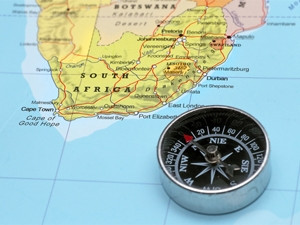
Yet another multinational is cranking up its South African presence in a bid to use the country as a launch pad into Africa, as the "second wave" of IT expansion takes place on the continent - ignited by lacklustre growth opportunities globally.
Yet, South Africa only has a limited window of opportunity to take advantage of its launch pad status before other African economies offer more compelling propositions. This year, Sweden-based IFS World is stepping up its African plans to entrench its presence beyond SA - where it has been since 1999, joining the likes of Nutanix, Software AG and SAP in moving further into the continent.
Thabo Ndlela, director of IFS Africa, says the company aims to expand into the rest of Africa by following its customers, and is keen to move into countries such as Mozambique, Angola, Kenya, Tanzania, Malawi, Zambia and Tanzania.
Slowly, slowly
However, IFS has no specific targets, and does not have a set budget, said Alastair Sorbie, president and CEO of the global company, speaking to ITWeb yesterday. Instead, the company is taking a pragmatic approach and will provide as many resources as necessary. "Africa has gone up our agenda as a growth region."
IFS's strategy mirrors that of other companies keen to get into Africa, such as EOH, which is also following a partner-led strategy and will invest as need be. Nutanix, the international converged infrastructure company, is expanding into SA to better service its growing Sub-Saharan African customer and channel base.
Simon Carpenter, chief customer officer at SAP Africa, notes this expansion represents a "next wave piling in to ensure they are not left behind". He notes African expansion has been shaping up for at least five years and the pioneers are already settled.
SAP also has plans to move into Africa and last August said it would pump as much as $500 million (R5.3 billion) into bolstering growth from the African continent. However, the company is taking a conservative approach, and is set to open its Moroccan office this year.
Growth opportunities
ICT veteran Adrian Schofield explains the next wave of African expansion is due to its promising growth rates, while the rest of the world is still struggling to exit the 2008 recession, which has created a tipping point for those seeking more revenue. According to the World Bank's latest figures, Sub-Saharan Africa is growing at 4.5%, and the region's overall economy is expected to pick up 5.1% by 2017.
In comparison, growth increased only marginally in 2014, to 2.6%, from 2.5% in 2013. Absa Investments analyst Chris Gilmour says there is growth to be had on the continent for IT companies looking to sell products to those businesses and countries that are boosting Africa's infrastructure.
Other companies that have previously rushed into Africa have "burned their fingers", notes Schofield. Among these are Telkom, which made a loss when it sold its Nigerian business, and Altech, which eventually pulled out of West and East Africa to stem the bleeding. Altech's parent company Altron is now also following a customer-led strategy.
Waning opportunity
Software AG, which is expanding its African presence through partners, believes SA is being used as a launch pad because it has the most ICT skills on the continent. Country manager Mohamed Cassoojee says SA is still seen as being best positioned, especially as local financial, insurance, retail and mining companies move into Africa.
Sorbie says SA is still a stepping stone as far as IFS is concerned. This, explains Ndlela, is because the infrastructure, economy and banking systems are all much more stable than on the rest of the continent.
Although SA is still the preferred launch pad, its attraction is waning, mostly because of the country's pathetic economic growth and eroding infrastructure, says Gilmour. He notes other countries are building logistics hubs and soon it will make more sense to expand into Africa from places such as Lusaka. "South Africa has a limited period to be a launch pad."
This is a sentiment with which Carpenter concurs, noting SA's status may not continue into the future, as there is evidence of a much more innovative mindset in other regions such as Nigeria and East Africa.
Share